Dear Readers,
Here is the latest Monday Muse with an audio meditation from the Dying Every Day series, a perennial reminder, insight, and recommendations to consider. If you’re interested in more audio and email meditations, consider becoming a member to support the project and gain access to our Sundays with Seneca series, Letters to a Young Seeker, courses, and much more.
Be wise and be well this week!
💀 Dying Every Day
The Dying Every Day series delivers audio meditations on the art of living. Each meditation provides a quote, a selected passage (from an original Stoic text), and a daily exercise to contemplate.
“Let us not wonder at any of those misfortunes to which we are born and which no one should complain of because they are the same for all. The same, I say: for even what a man has escaped, he might have suffered. An equal law, indeed, is not one that all experience but one that is established for all.”
— Seneca, On Obedience to the Universal Will
Selected Reading
In this week’s meditation, we explore the art of hardship through a selected passage adapted from the Discourses of Epictetus.
It is hardships that show what men are. Therefore when a difficulty falls upon you, remember that God, like a trainer of wrestlers, has matched you with a rough young man. For what purpose? you may say. Why, that you may become an Olympic conqueror; but it is not accomplished without sweat.
In my opinion, no man has had a more profitable difficulty than you have had if you choose to make use of it as an athlete would deal with a young antagonist.
We are now sending a scout to Rome; but no man sends a cowardly scout, who, if he only hears a noise and sees a shadow anywhere, comes running back in terror and reports that the enemy is close at hand. … Diogenes, who was sent as a scout before you, made a different report to us. He says that death is no evil, for neither is it base; he says that fame (reputation) is the noise of madmen. And what has this spy said about pain, about pleasure, and about poverty?
He says that being naked is better than any purple robe, and sleeping on the bare ground is the softest bed. He affirms his own courage, tranquility, freedom, and healthy appearance and compactness as proof of each thing. There is no enemy near, he says; all is peace.
+ Adapted from the Discourses of Epictetus
—
Daily Exercise
Consider reflecting on a recent hardship. What did you learn about yourself from the experience? How might you handle a similar situation in the future?
📌 Perennial Reminder(s)
We who lived in concentration camps can remember the men who walked through the huts comforting others, giving away their last piece of bread. They may have been few in number, but they offer sufficient proof that everything can be taken from a man but one thing: the last of the human freedoms—to choose one’s attitude in any given set of circumstances, to choose one’s own way. And there were always choices to make. Every day, every hour, offered the opportunity to make a decision, a decision which determined whether you would or would not submit to those powers which threatened to rob you of your very self, your inner freedom. […]
Source: Man’s Search for Meaning by Viktor Frankl (via Reading & the Good Life)
💡 Perennial Insight(s)
No one’s life can be reduced to one event, one enterprise, or one ambition. Each is made of facts and facts and facts. Nor is there any fate to be discerned in what transpires. As we relive the season, the at bat, we see how differently things could go, the sheer contingency of failure and success. More than that, we see how tempting and how dangerous it is to tell the stories of our lives as if they had some hidden teleology, driving onward to predestined ends. […]
Source: Life is Hard by Kieran Setiya (Listen on In Search of Wisdom)
🛋️ Perennial Reflection
This week’s passages reminded me of what the writer and theologian Henri Nouwen called the three big lies: (1) “I am what I have.” (2) “I am what I do.” (3) “I am what others say about me.” Consider taking a moment to reflect on the second lie — “I am what I do.”
What does it mean to see ourselves beyond our actions?
The great Russian writer Leo Tolstoy observed,
One of the commonest and most generally accepted delusions is that every man can be qualified in some particular way — said to be kind, wicked, stupid, energetic, apathetic, and so on. People are not like that. We may say of a man that he is more often kind than cruel, more often wise than ignorant, more often energetic than apathetic, or vice versa, but it could never be true to say of one man that he is kind or wise, and of another that he is wicked or ignorant.
Yet we are always classifying mankind in this way. And it’s wrong.
Human beings are like rivers; the water is one and the same in all of them, but every river is narrow in some places and flows swifter in others; here, it is broad, there still, or clear, or cold, or muddy or warm. It is the same with men. Every man bears within him the germs of every human quality and now manifests one, now another, and frequently is quite unlike himself while still remaining the same man.
To know ourselves is to begin seeing through lies, delusions, and stories—to see a hardship (and Life) for what it is—an opportunity. Because we are not what we do, we can never lose our agency to choose. Our lives are much more complex than a single event, choice, or action.
📖 Perennial Book(s)
This week’s book recommendation is A Way of Being by the American psychologist Carl Rogers (1902-1987). Rogers was the founder of the humanistic psychology movement and the father of client-centered therapy. He based his life's work on his fundamental belief in the human potential for growth.
“Increasingly, I discover that being alive involves taking a chance, acting on less than certainty, and engaging with life. All of this brings change, and for me, the process of change is life. I realize that if I were stable and steady and static, I would be living death. So, I accept confusion, uncertainty, fear, and emotional highs and lows because they are the price I willingly pay for a flowing, perplexing, exciting life.”
— Carl Rogers, A Way of Being
—
Thank you for reading/listening; I hope you found something useful.
Until next time, be wise and be well,
J.W.
P.S. If you’re interested in becoming a member but cannot afford it, feel free to request a complimentary membership or use this discount link.

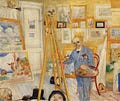






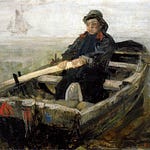

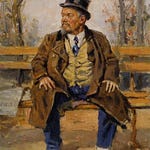

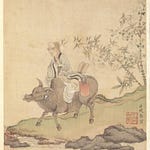
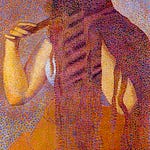
The Art of Hardships, Freedom, and Failures